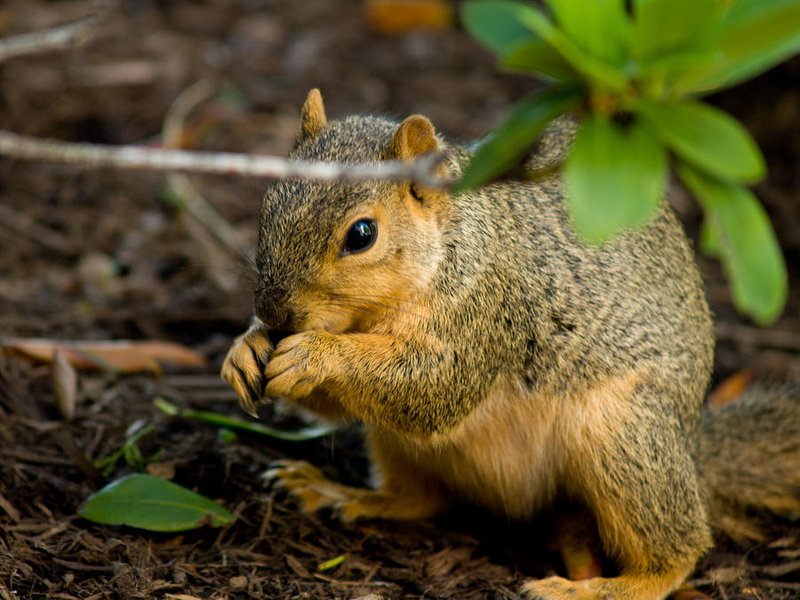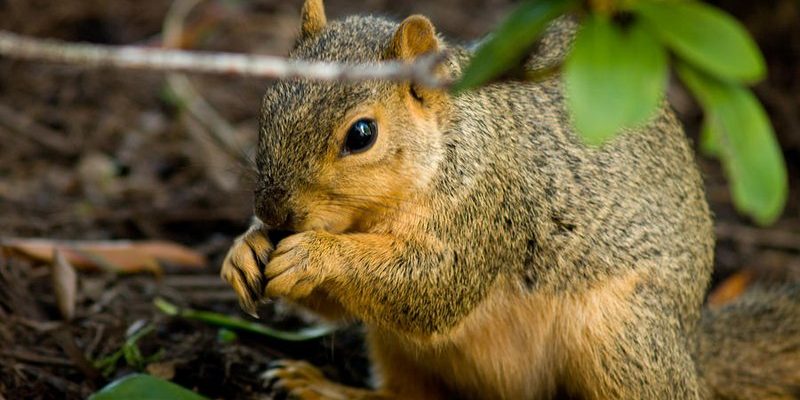
Imagine a ground squirrel as the clever little neighbor who always seems to know what’s going on around the block. You might see it strategizing its next move as it dodges danger or remembers where it stashed its food. This ability to think and adapt is not just instinct; it shows a level of intelligence that’s worth exploring. So, let’s dig deeper and uncover how smart ground squirrels really are, from their behavior patterns to their problem-solving skills.
Understanding Ground Squirrel Intelligence
First things first, what do we mean when we talk about intelligence in animals? Generally, intelligence refers to the ability to learn, adapt, and problem-solve. Ground squirrels demonstrate these traits in several ways, making them quite clever in the animal kingdom. One of the most notable aspects of their intelligence is their *social structure*. They live in colonies, which encourages interaction among members and requires them to communicate effectively.
In these colonies, ground squirrels often have a complex hierarchy and social dynamics. They engage in activities like grooming and playing, which strengthen their social bonds. This interaction can be seen as a form of emotional intelligence, revealing that they can form relationships and understand social cues, much like humans do. So, the next time you watch a group of ground squirrels, you might just see a bustling community that’s more than meets the eye.
Cognitive Abilities of Ground Squirrels
So, what specific cognitive abilities do ground squirrels possess? Research has shown that these creatures can perform several impressive feats. For starters, they exhibit remarkable *memory skills*. Ground squirrels store food in various locations, and they can remember where they buried items for later retrieval. Imagine trying to remember where you put your favorite snack—you might need a little help if it’s buried in your backyard!
Another incredible ability is their *problem-solving skills*. Ground squirrels can adapt their foraging techniques based on the environment. If one method doesn’t work, they’ll quickly switch to another. This flexibility shows a keen understanding of their surroundings and highlights their intelligence. Whether navigating obstacles or finding new food sources, they have a knack for figuring things out.
Social Behavior and Communication
Ground squirrels are quite the chatterboxes, and their communication skills are essential for survival. They have a variety of vocalizations, each serving different purposes. For example, they use alarm calls to warn their fellow squirrels about predators. Imagine one squirrel spotting a hawk and quickly alerting the others—it’s like a neighborhood watch for these little critters!
Moreover, they use body language and vocal signals to maintain social bonds. For instance, they might engage in *grooming* behaviors, which not only help keep their coats clean but also strengthen friendships within the colony. This social behavior is vital for their survival and shows a level of social intelligence that many people might not associate with such small animals.
Problem-Solving in Action
If you think of ground squirrels as mere food hoarders, think again. They often face challenges that require them to come up with creative solutions. One common scenario involves *finding food*. In natural settings, they may encounter barriers, like rocks or other animals, when trying to reach hidden food sources. Instead of giving up, they analyze the situation and figure out how to overcome these obstacles.
For instance, if they can’t go through a particular path, they might try a different route or climb over obstacles. Their ability to adapt and innovate in challenging situations showcases a keen intellect. It’s like watching a little engineer at work, rethinking and redesigning their approach to reach the goal.
Adaptability to Their Environment
Ground squirrels also display remarkable adaptability. They thrive in various environments, from deserts to grasslands, which requires understanding and reacting to different conditions. For example, in harsher climates, they may need to develop strategies for food storage that can withstand the elements. This could mean burying their food deeper or choosing more sheltered spots to hide their snacks.
Their adaptability doesn’t stop at food storage either. They adjust their behaviors according to seasonal changes. During winter, ground squirrels enter a *hibernation-like state*, slowing their metabolism and conserving energy. This strategy demonstrates their ability to plan and prepare for the future, further illustrating their cognitive capabilities.
Comparing Ground Squirrels to Other Rodents
When we look at ground squirrels in comparison to other rodents, their intelligence stands out. For example, while all rodents have some level of problem-solving skills, ground squirrels show a remarkable ability to work together. This teamwork can be crucial when foraging for food or avoiding predators.
Take the prairie dog, a close relative, for example. Prairie dogs also live in colonies and communicate well, but ground squirrels tend to have more complex social interactions. Their ability to navigate social hierarchy and maintain friendships within the group enhances their chances of survival. It’s like comparing a solo artist to a whole band; both can be talented, but the band has that extra layer of collaboration.
Why Understanding Their Intelligence Matters
So, why should we care about how smart ground squirrels are? For one, learning about their cognitive abilities can deepen our appreciation for wildlife and ecosystems. These little creatures play a significant role in their environments, influencing plant growth and serving as prey for a variety of predators. Understanding their intelligence helps us acknowledge their contributions to the ecosystem.
Furthermore, studying their behavior can provide insights into animal intelligence more broadly. Ground squirrels may not be at the top of the food chain, but their problem-solving skills and social structures offer valuable lessons about adaptability and survival. It encourages us to think about the intelligence of other species and how we interact with them in our own environments.
In conclusion, ground squirrels are more than just cute, bushy-tailed critters we see in our backyards. They are intelligent animals with complex social behaviors and problem-solving abilities that deserve our attention. By understanding their cognitive skills, we can appreciate their role in the ecosystem and the remarkable adaptations that make them so resilient. So next time you spot a ground squirrel, take a moment to admire a creature that’s got a lot more going on than you might think!

